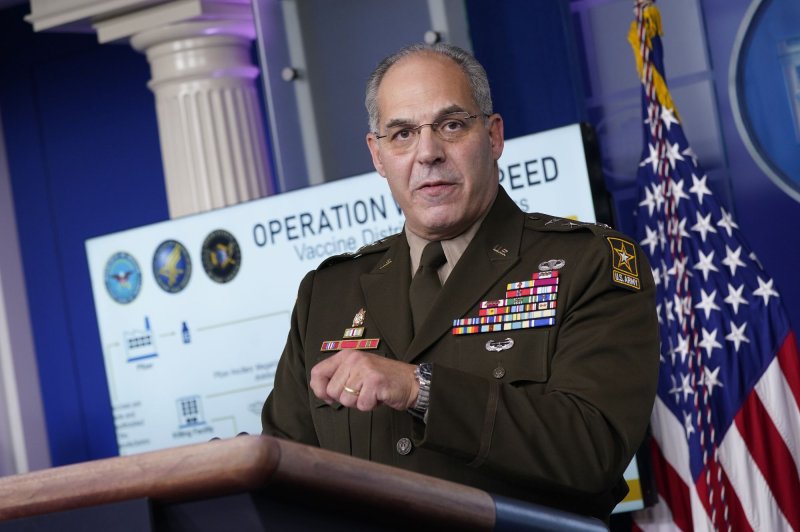US needs clear vaccine distribution strategy to defeat coronavirus
December 17, 2020 -- An opinion piece published today online in BMJ by Nina Schwalbe in the Heilbrunn Department of Population and Family Health at Columbia Mailman School of Public Health, calls for a national vaccine strategy now that COVID-19 vaccines are available. Schwalbe writes that a lack of clarity on a distribution plan sets unrealistic expectations among the public and could undermine public trust. But even with a clearly defined strategy in place, vaccinating hundreds of millions of Americans will not be easy. Read the full article here.
Vaccines don't deliver themselves," notes Schwalbe, who is also a Principal Visiting Fellow at the United Nations University International Institute of Global Health. "Vaccines require a safe, trusted and accessible immunization system."
To address the high covid-19 death rates in the medium to long term, Schwalbe recommends the following:
Set realistic expectations on the role of vaccines in the COVID-19 response and communicate those clearly. For example, given limited supply, the immediate focus seem to be to reduce mortality of individuals in high-risk groups and transmission in health care settings. It is not to reach herd immunity.
Call upon the Biden administration to enact a parallel commitment to universal health coverage to help protect those people vulnerable to underlying conditions, like diabetes and heart disease, that put them at risk of severe covid-19 disease in the first place.
Work directly with communities to devise a plan that addresses their fears, and engages them to figure out the logistical challenges.
###
Columbia University Mailman School of Public Health
Founded in 1922, the Columbia University Mailman School of Public Health pursues an agenda of research, education, and service to address the critical and complex public health issues affecting New Yorkers, the nation and the world. The Columbia Mailman School is the seventh largest recipient of NIH grants among schools of public health. Its nearly 300 multi-disciplinary faculty members work in more than 100 countries around the world, addressing such issues as preventing infectious and chronic diseases, environmental health, maternal and child health, health policy, climate change and health, and public health preparedness. It is a leader in public health education with more than 1,300 graduate students from 55 nations pursuing a variety of master's and doctoral degree programs. The Columbia Mailman School is also home to numerous world-renowned research centers, including ICAP and the Center for Infection and Immunity. For more information, please visit http://www.
Operation Warp Speed chief: Pfizer vaccine rollout
had 'miscommunication'

Army Gen. Gustave F. Perna takes responsibility for "miscommunication" about allocation of COVID-19 vaccine doses to states Saturday. File Photo by Chris Kleponis/Pool | License Photo
Dec. 19 (UPI) -- The head of Operation Warp Speed on Saturday said a "miscommunication" about COVID-19 vaccine doses means some states will receive fewer doses than they expected.
Army Gen. Gustave Perna said he took full responsibility for the issue during a news briefing.
"I want to assure everybody, and I want to take personal responsibility for the miscommunication," Perna said during the briefing. "Here is the bottom line, I want to make sure that we are 100% committed to fair and equitable distribution to everybody in the United States of America."
Perna is the chief operating officer of Operation Warp Speed, the U.S. government's public-private partnership to accelerate work on COVID-19 vaccines.
The acknowledgement came after more than 10 states said that the number of Pfizer COVID-19 doses they had been expecting to receive had been cut without explanation.
Perna said he had to revise down the number of vaccine doses allocated to certain states after he got more information from Pfizer about the amount of vaccine available.
Perna added that the "miscommunication" happened because he did not understand all the steps "with exactness" that needed to happen before releasing all the vaccine available.
"There is no problem with the process," Perna said. "There is no problem with the Pfizer vaccine. There is no problem with the Moderna vaccine. It was a planning error, and I am responsible."
Perna referred to the Food and Drug Administration as "the gold standard not just in America but around the world," and said he has to wait until the vaccine doses are releasable in accordance with the agency.
He apologized to the state governors who may have started planning based on the initial doses forecast.
"Please accept my personal apology if this was disruptive to your decision-making," Perna said, adding that he would personally brief governors Monday.
Perna added that Operation Warp Speed would not "cut corners" in vaccine distribution.
Pfizer released a statement Thursday saying they were not having any production or distribution issues and more doses were available.
RELATED WHO's COVID-19 vaccine drive doubles global supply to 2 billion doses
"This week, we successfully shipped all 2.9 million doses that we were asked to ship by the U.S. government to the locations specified by them," the statement said. "We have millions more doses sitting in our warehouse but, as of now, we have not received any shipment instructions for additional doses.
"We remain confident in our ability to deliver up to 50 million doses globally this year and up to 1.3 billion next year, and we look forward to continuing to work with the U.S. government to deliver our vaccine to the American people," Pfizer added.
While the Pfizer-BioNTech COVID-19 vaccine has not been fully approved by the FDA, it has been authorized for emergency use to prevent COVID-19 in individuals 16 years of age and older.
The FDA issued an emergency use authorization for a second COVID-19 vaccine -- one made by Moderna.
No comments:
Post a Comment